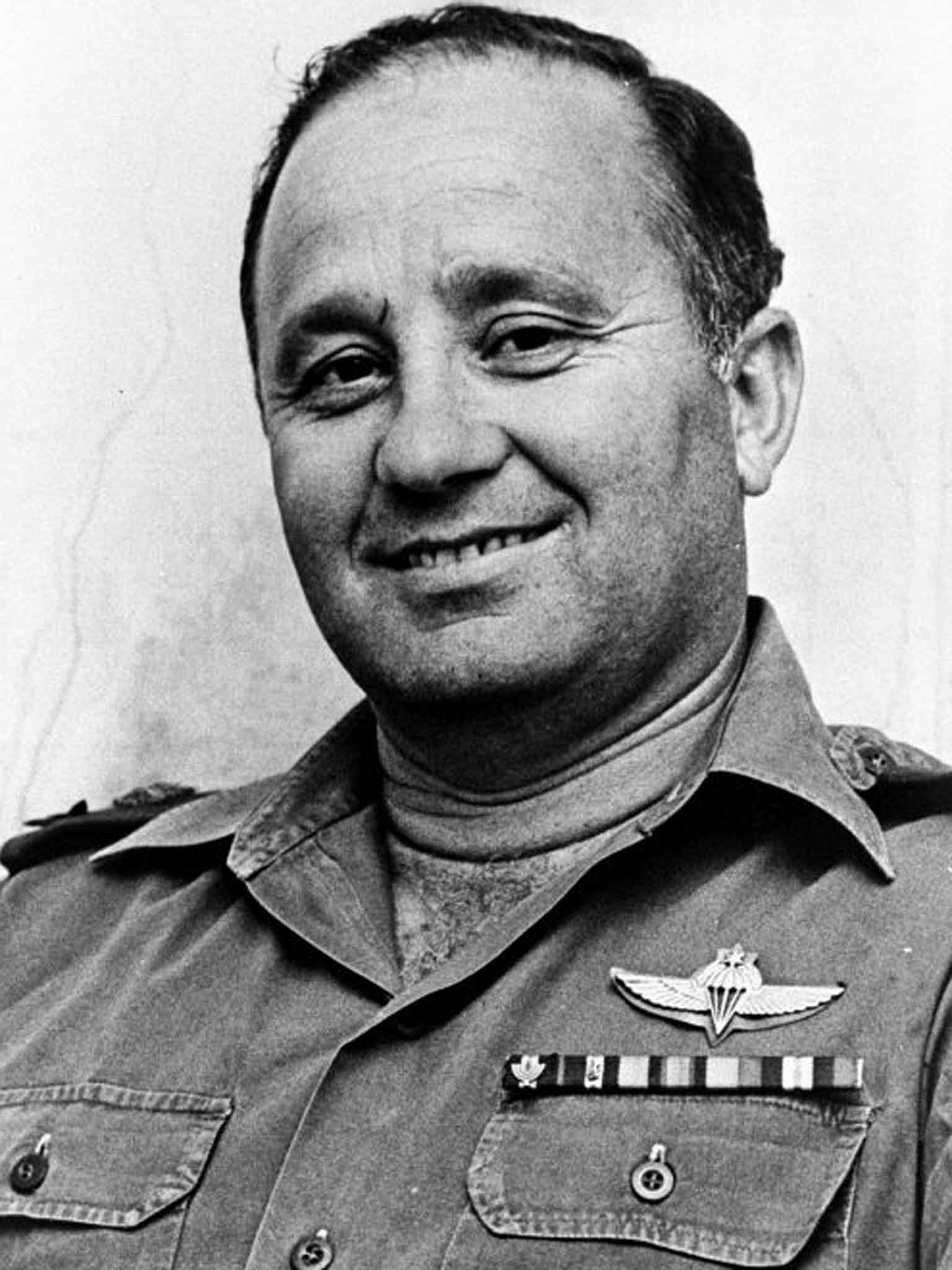Major General Yitzhak Hofi: Soldier whose gloomy assessments helped win the Yom Kippur War and who went on to serve as head of Mossad

As head of Israel's Northern Command in October 1973, Major General Yitzhak Hofi's greatest contribution to Israel's stand in the Yom Kippur War was made before the fighting, rather than in the war itself.
Despite a majorbuild-up of the Egyptian and Syrian armies on Israel's borders in previous weeks, Israeli Military Intelligence was convinced the Arabs would not risk war again, just six years after their devastating defeat in the Six Day War. The Egyptian build-up along the Suez Canal, it said, was part of a training exercise, while the Syrians were massing because they feared Israeli retaliation after a recent air clash. War was at least two years away, Intelligence insisted. Hofi was dubious about that assessment.
From high ground he could see the three divisions Syria normally deployed between the Golan and Damascus growing ever thicker. Never had they fielded so many tanks and artillery pieces. Even more worrying was the presence of SAM-6 anti-aircraft batteries. The SAM-6 was the most advanced of the Soviet-made missiles in Arab hands and the Israeli air force had yet to come up with a reliable method for neutralising them.
The Syrians, Hofi noted, had deployed the batteries in unusually advanced positions where they covered not only the Syrian lines but the skies above the Israeli-held Golan as well. The Israeli Air Force had refrained from flying over the Golan for weeks and only low-flying crop dusters were permitted there.
The three Syrian divisions had 800 tanks as well as thousands of infantrymen transported in armoured personnel carriers. Two other armoured divisions were in reserve. On the Golan Hofi had one under-strength armoured brigade, the 188th, with 77 tanks. The lead Syrian elements could cross the 400 metre-deep no man's land with little to stop them.
Such odds could be tolerated only if Intelligence provided enough warning – two or three days – to permit Israel's reserves, two-thirds of the army's strength, to mobilise, and if the air force was available to support the ground forces. Hofi was increasingly uneasy about Intelligence's "no war" assessment and the SAM-6s made Air Force intervention similarly questionable. At a meeting of the General Staff 12 days before the war to discuss warplane acquisition, Hofi asked permission to deviate from the agenda. The Syrians could strike without warning, he said, and it was questionable if he could stop them if he was not reinforced.
The discussion about warplanes continued around the table without anyone addressing Hofi's remark. As the meeting was concluding, the Defence Minister, Moshe Dayan, intervened. The General Staff, he said, could not let Hofi's remarks pass without comment. "If what he says holds water, we need a plan for dealing with it." The generals were in "no war" mode but, at Dayan's prodding, another armored brigade, the Seventh, was ordered up to the Golan. Its last elements arrived before noon on Yom Kippur, 6 October.
At 2pm the Syrians attacked, at the same time as the Egyptians crossed the Suez Canal. Israel was caught in a full-scale, two-front war with its reserves unmobilised. That night the Syrians broke through the Golan front and virtually annihilated the 188th Brigade. The only significant point of resistance was the Seventh Brigade at the northern end of the line.
Dayan flew to to Northern Command at dawn in a helicopter and found Hofi "collapsing, tired, worn out". The Golan may have to be abandoned, he said. General Moshe Peled, commanding a reserve armoured division which had begun to mobilise, found Hofi trying to snatch a few moments' sleep on a cot. "Where do you want me?" asked Peled. Hofi told him to deploy his forces, when they arrived, along the Jordan River at the foot of the Golan, inside Israel. Peled was dismayed at this implied abandonment of the Golan.
The previous Chief of Staff, Haim Bar-Lev, arrived a few hours later as a troubleshooter for his successor, General David Elazar. After hearing out both Hofi and Peled, he went for Peled's plan. His division, arriving in the morning, would mount the Golan from the south and push north, cutting the Syrians' supply lines. With this attack the tide began to turn, and with it Hofi's spirits.
Despite criticism of Hofi for his performance on the first day, he had in effect saved the Golan by bringing about the deployment of the Seventh Brigade, whose gritty battle, which would be featured in military histories, gave time for the reserves to arrive. The war would end with the sound of Israeli artillery audible in Damascus.
Hofi retired from the army in 1974 to begin a no less eventful career as head of the Mossad, a position he held for eight years. Under his command the espionage agency played a role in the rescue of hijacked airline passengers at Entebbe in 1976, the attack on Iraq's nuclear reactor in 1981, and the assassination of several Palestinian Black September leaders. His ties with the king of Morocco paved the way for Egyptian-Israeli talks that led to a peace treaty. One of his successors as head of the Mossad, Ephraim Levy, said, "He was the first to lay the foundations for reconciliation between Israel and its enemies."
Yitzhak Hofi, soldier and intelligence officer: born Tel-Aviv 25 January 1927; died Ramat Gan, Israel 15 September 2014.
Join our commenting forum
Join thought-provoking conversations, follow other Independent readers and see their replies
Comments